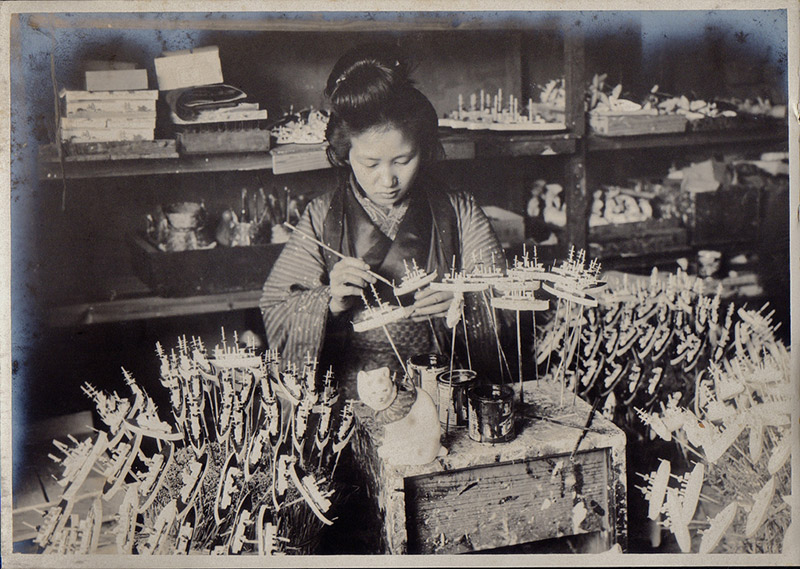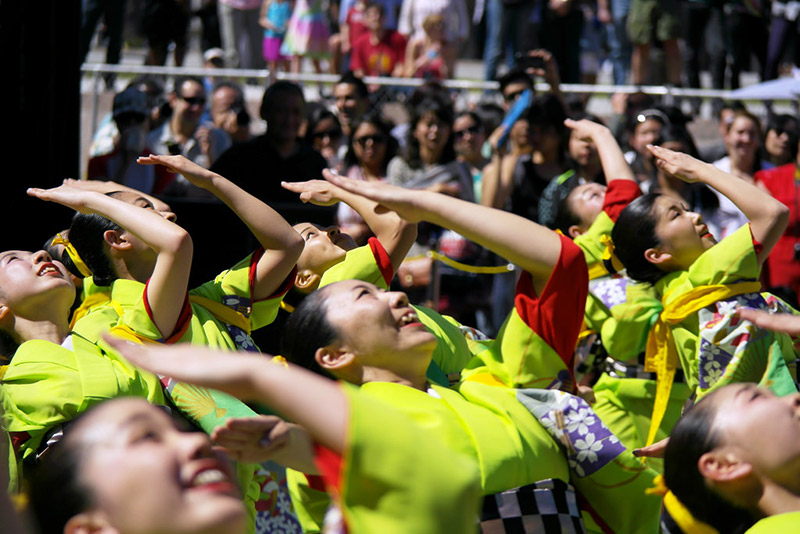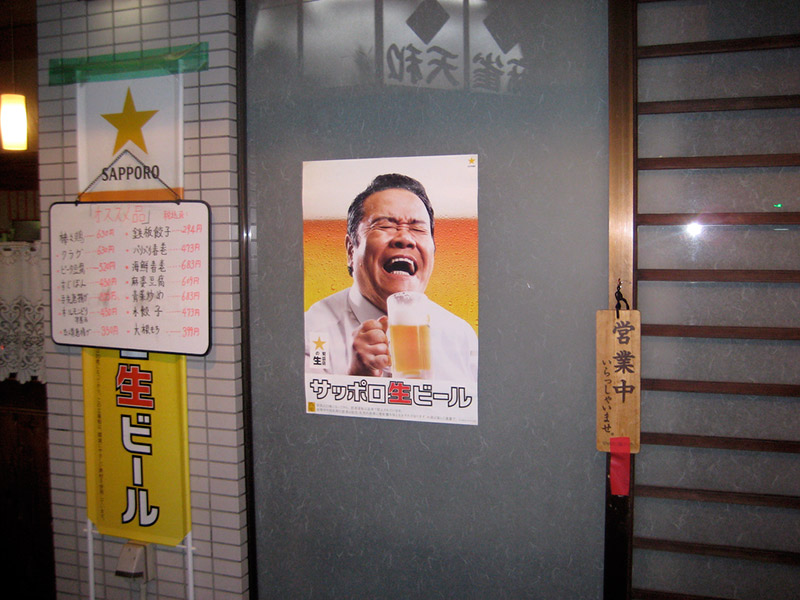Japan is known for precision, quality control: exactitude. This is a philosophy that leans heavily on the soul of the national consciousness. There is a way to do things in Japan, the Japanese way. In lieu of generosity, hospitality, and forgiveness, the practice of being Japanese correct often overrules Western common sense. Therein lies the quandary. But for whom?
The white clothed tables are set with crystal. An inimitable flower arrangement alights upon a pedestal overlooking the entry, and the modernist painting grants us that perfect stay.
Breakfasting at a swanky restaurant in Shinjuku, the waitress bowed to our orders. I requested the Eggs Benedict with smoked salmon and a side of hash browns, extra crispy. My classmate visiting from Belgium was hitting the buffet. Good choice.
Sipping coffee as my friend dove into his scramble, the chatter and occasional laugh reminded me of how I used to think, the way I socialized, and my now moderated expectations. The Belgian businessman across from me was here for talks, or contracts, or something an all-inclusive tax write-off could afford.
My meal arrived and I unfurled the chunky silverware into my hand, stationing the linen napkin upon my lap. Now, I am not a picky eater by any measure. I dine cursorily. Japanese people, however, are fastidious diners. So when I raise my hand to the server, I am asserting my Japanese given rite, a 3000-yen breakfast right.
Well into my first Benedict, I pierced the potatoes. They were soft. No biggie really, but should I let it slide? Would a Japanese person let it slide? A few moments contemplation and it was decided, this breakfast needed to be Japanese correct, in other words, five star perfect. There are mechanisms in place and it is a rare occasion I am treated so well.
Explaining My Dilemma

The waitress leaned in apology, collected my silverware and pulled my plate.
“I’ve never seen a server wrestle away a fork before,” my fellow breakfasteer observed, pausing his own utensils. “Bon appétit?” he called with a slight grin before pushing away cheerfully and returning to the buffet.
I understood it was funny as a new experience, but this was not a day of firsts. Having the wrong meal, or partially wrong order confiscated in a Japanese restaurant so the correct meal could be re-presented is not a novel solution in Japan. Taking away the entire meal and replacing it with the precise order feels a more normal remedy now than what I would have considered bad practice in the United States.
In the US, I’ve had all sorts of dining drama. From simple mix-ups to complete order debacles. It happens. But never have I had my plates extracted amid portion for a minor offense. Instead, the amended portion of the meal is brought out in addition to the original order that was set before the customer. Plates are rarely taken away as a corrective. The only exceptions to this are poorly prepared dishes and pricey cuts of meat requiring disposal or a little more heat respectively. Otherwise, “Here you go hon, hash browns extra crispy.”
Back in Girandole, not only did the waitress return, she was leading the chef. My friend’s smirky demeanor implied a Francophone’s hope as he lowered his silverware wondering if the duo were about to flash culinary badges and haul me away. Thankfully, to his disappointment, the server presented all new utensils, and the chef gracefully bestowed a fresh platter of Eggs Benedict now with crispy hash browns. They bowed, and before I could acquiesce…
“Moment!” The Belgian needed answers. “You could have brought just the hash browns,” he instigated, “I believe my friend would have been equally pleased. Still, you made an entirely new order. Overkill, no?” His eyebrow arched.
The chef smiled plainly in his pristine white robe. “Presentation is everything, and memory is important. This one is perfect,” he said politely, while nodding toward the hash browns I happily pushed into a bit of yolk.
The Belgian did not quarrel. He understood that arguing against Japanese principle with any notion of Western economy would be a mistake. That, and not pissing off those who prepare the food was equally important. He, like me, recognized the limits of decorum. We no longer fought for principle, only for fun.
The Meaning Of Breakfast

Much, and I mean a lot, has been scholastically written on the matter of Japanese correctness and its influencers. The Japanese language is systematically vague, obscure, and abstract, often working best in the context of summarization.
Simply put, as 13th century Japanese Zen Buddhist teacher Dōgen Zenji expounded in summary of meditation: “Practice only sitting.”
Now add a bit of Shintoism to the mix, and we move closer to rationalizing new plates, and not just hash browns.
In Shintō, “purity” has been regarded as one of the most important virtues ever since ancient times. Although almost all people love this virtue, what the Japanese mean by “purity” differs considerably from other peoples’ ideas. In Japanese, “purity” is expressed by various acts and ideas such as frequent bathing, daily sweeping and dusting, purification ceremony (misogi), great exorcism (ō-harai), image for redemption (katashiro), dislike of defiledness, abstinence (monoimi), tidiness of appearance. All of these concrete acts which appeal to the senses and unsophisticated sentiment. Their aim is not purity in any metaphysical or religious sense, based on poignant consciousness of sinfulness. In this sense, the Japanese people are essentially different from the Indians. (Ways of Thinking of Eastern Peoples: India, China, Tibet, Japan by Hajime Nakamura)
Japanese people’s sense of purity is hyper-connected to physicality and action, unlike Indian people and their subsequent metaphysical emphasis.
In light of this, my breakfast was dead on arrival regardless if I had mentioned the failure or not. My meal didn’t even have a chance. And the only remedy was a new beginning. Sure, the Belgian was correct in saying I would have happily accepted crispy hash browns: leave the error and bring the remedy. My western common sense tells me this is acceptable. The unlikely Japanese solution however, was to disrupt the meal for the sake of restitution, not customer service. This is a classical example in which the ends justify the means, particulary in Japan1.
Everything Has Its Place

Purity as a sense of freedom from adulteration or contamination is the very Western definition of the word. It is also what strikes hardest at those outside of Japanese tradition. This is purity that can be experienced, physically. It is severe in its judgment, and any promise unfulfilled is simply less than perfect. Purity does not tolerate impurity. It cannot.
So a meal is replaced. It is made over, made completely right. The perniciousness has been taken away, and all is once again right in Japanese breakfasting world.
Call It Quality Control

The notion of purity has made its mark upon Japan in several ways. The most significant positive is the preservation of Japanese cultural identity in the face of western influence, daresay sensibility. This is not to say Japanese people are ignorant.
While true that an American and a Japanese do not have identical images of a chair because normal sitting in Japan is on the floor, all Japanese understand the basic functions of a chair and would be unlikely to stand on it. (Making Common Sense of Japan by Steven R. Reed)
The Japanese people are informed; they know their options, yet something tempers them. Call it taste, aesthetic, or purity. The built-in sense of Japanese exceptionalism is drawn from Shinto beatitudes. This philosophy clings to the greater good through the purging of impurity from society, which becomes the status quo. The Japanese desire to meet expectation also projects a inverse negative: a literal path to death2.
Like many societies built on exceptionalism, the quest to purge often leads to conflict. Globalization, the open market, and what is pure for one people is eschewed by another: the [insert nationality] Way. This nationalistic sentiment is an anthem throughout nations.
The Japanese Way is no different. As a Westerner brought up with sensitivity to Japanese culture, I recognize some of the influence across societies. It is well pointed out in normal conversation with Japanese people as they often reference “Japanese taste,” as an excuse, as an argument, and as a solution.
This does not mean I accept their philosophy, it simply means I will be less likely to exclaim, “Ehhhhhhh?” upon hearing extraordinary views. It is not surprising, because I have learned not to rationalize why a deck must be sanded or a car must be waxed. This Japanese methodology may at first appear to only benefit themselves, the Japanese, but recognizing what is truly selfish and what is, in actuality, acceptable practice, is the true test of “reading the air.”
Doing It Their Way

The group effort diffuses blame. As a friend who worked at Tokyo Power and Electric during the Fukushima crisis said, “It’s assumed that everyone is responsible, that is why nobody takes the blame.”
I argue against his belief. I cite a long history of personal responsibility throughout Japan. He likes to point out that suicide is not the acceptance of responsibility, thus diffusing my argument. And then, continues with the notion that Japan has severely departed from such romantic notions of honor to a more-or-less severe anti-ostracisation practice, better known as “cover thy ass,” no matter how little is exposed.
I have not adopted this opinion, yet believe it is valid. For example, receiving a note to show your boss, when the train is actually late is an example of Japanese correctness. Nowhere in the US does this happen.
Tuesday, January 17, 1995 @ 05.46 JST
The earthquake near Kobe exemplifies the negative of Japense correctness, as relief efforts were halted by officials reluctant to accept assistance from Swiss search and rescue dogs held up in quarantine.
While the world praises Japanese culture for its deliberate refinement and contemplation in aesthetics, such group efforts toward Japanese (bureaucratic) correctness often delays any immediate call to action in times of crisis. And while the international community chastises Japan for its indecisive nightmare, those in charge wish to think it over, just a little more.
Crisis Not Averted

At dinner the following night, I reconnected with my Belgian classmate. His meetings adjourned, we opted for Italian. Entering the ivy-strewn restaurant, I asked what made him such a confident negotiator.
“When I want to be vague, I speak Japanese.”
“Of course,” I responded.
“And when I want to be direct? I speak English.”
“What, no French?”
“Never,” he said brusquely, “Well, almost never. If they understand French, it’s only in fun. There’s too much gray area because the language is too colorful.”
He knew I was lost.
“Japanese do poorly when it comes to gray areas.”
“But Japanese is one huge gray area!” I suggested.
“Oui et non, the language is gray, not the people. The people are exact. If I am expected to make a decision, no problem. However, if I am indecisive, that’s a big problem because it shifts responsibility back to them. Understand?”
I shook my head.
“Here. I’ll show you.” He signaled to our server.
The waitress approached and tilted a small confident bow. “Ready to order?”
The Belgian closed his menu, set it aside and blinked at me before cocking his head toward the checkered woman as he sat up straight and spoke, “Surprise us.”
Color pushing to her cheeks, she collected our menus and ran off!
“So evil.” I grinned.
“What is it you Americans say, ‘Don’t hate the game, hate the player?’”
“No. But for you, I’ll make an exception.”
